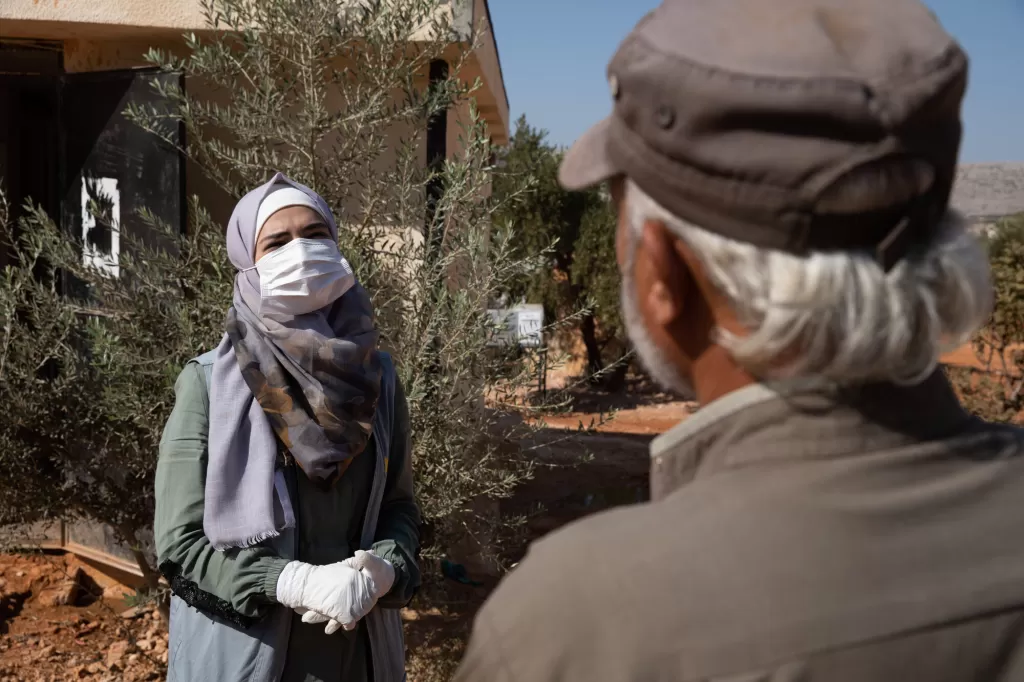“We have seen many tough things in Syria over this last year, but the worst thing was Covid-19. In the past few months, a new variant of the virus arrived and spread fast. So many people died. A lot of hospitals are closed and because there are no beds, no oxygen, no place for people to be treated, people died outside or at home without any medical care.
People living with conflict
And, on the other hand, people in Syria are living with conflict. Just a few weeks ago children were injured on their way to school and there were no hospitals to receive the sick and wounded. So, people in Syria are in danger from two sides, from conflict and Covid-19.
The conflict has been raging for over ten years and millions of people have now had to flee their homes. We now have the biggest internally displaced population in the world. For these people, Covid-19 has meant that poverty and hunger has only increased.
Our children can't go to school and can't continue their education by WhatsApp or Zoom, because they have no devices to study online. I feel so bad for the children – for the loss of their childhood and the loss of their future.
People live in really hard conditions, in small tents in the camps. They live on open land out of the city, so they have nowhere to work and no land to plant. They don’t have enough food to cook. The living conditions in the camps is terrible. People use the same water for washing their hands, their dishes and rinsing the floor, and the surface sewers mean that when you walk through the camp, you see a lot of flies and there is a very bad smell.
They need clean water to drink and wash, but there is none, so they must buy it, or go and bring it from another camp, where it has been delivered.
Water is needed for everything
We help provide a toilet and sink for people to wash their clothes and their dishes. We have been delivering hygiene kits, water tanks and water. We go around and talk to the families – we encourage them to wash their hands and clean everything all the time. And not to save the water just for drinking.
We tell them, we will provide you with water every day; for drinking, washing your hands, for everything. We wish to help them limit the increase of this virus and help them save their lives.
It’s coming to winter now, and cold and harsh weather is arriving. People need medical care, food and they desperately need warm clothes, blankets, and tarpaulins to protect their children from the rain and cold.
The hardest days
The last month was so hard, and I think we are coming to the hardest days. If this virus spreads in the north of Syria, the border will close, and people here will have no aid. And I think then, we will absolutely see deaths.
Even though life is so bad for these people we see their smiles and we know we’ve helped them a little. I like to wake up every day and go outside, under heat, under rain, to go and see them and talk with them. If you could see their smiles you too would be happy that you’ve helped them.
Thank you for supporting the DEC Coronavirus Appeal and helping the people of Syria.”
With your support, DEC member charities have trained community health workers to promote Covid-19 awareness, supported the elderly to protect themselves from the virus, provided cash, food, water and hygiene kits. The appeal has supported hospitals in northwest Syria and a campaign to promote vaccine acceptance and uptake.
The DEC Coronavirus Appeal has also helped vulnerable people in Afghanistan, DR Congo, India, the Rohingya camps in Bangladesh, South Sudan, Somalia and Yemen stay safe through the pandemic.



